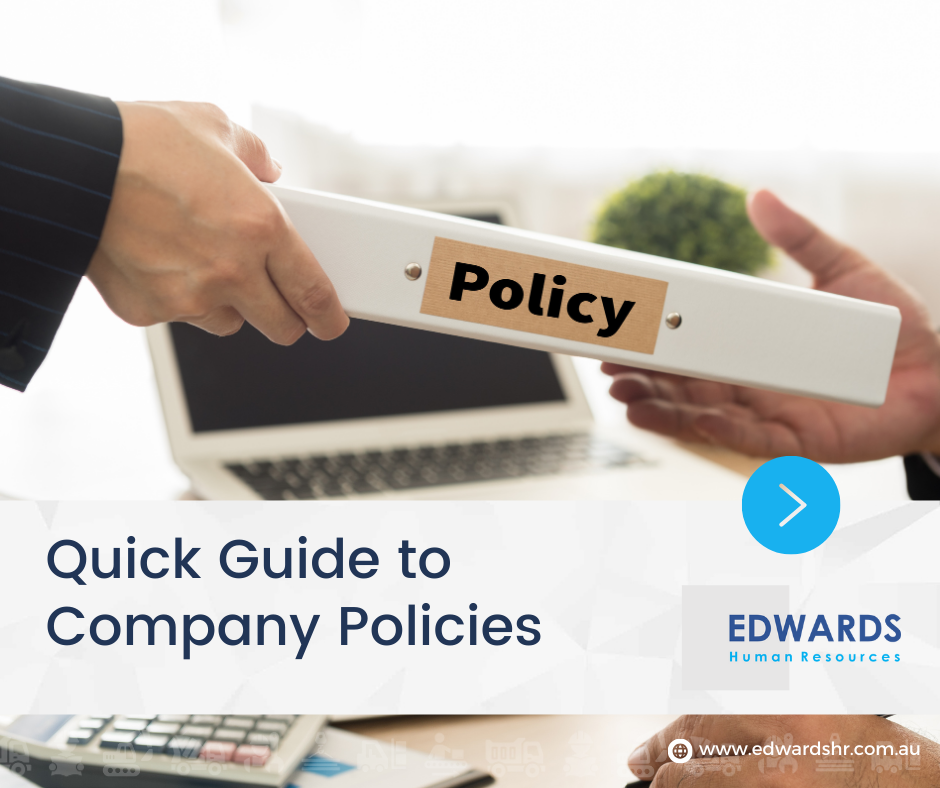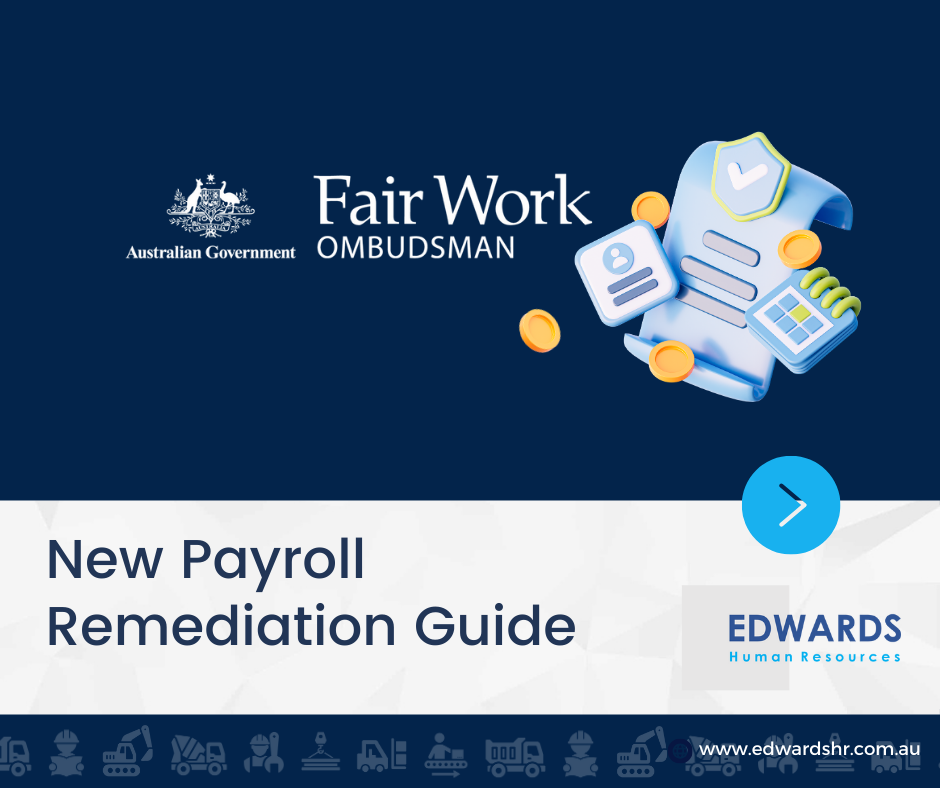- Published
No matter the industry, every organisation needs company policies to operate effectively and successfully. Whether you’re new to creating policies or need a refresher, this guide covers everything from essential company policies to how to create a company policy and how to enforce company policies effectively to ensure compliance and reduce the risk of liability.
What are Policies?
Company policies are written documents that establish clear expectations and provide guidance on how to handle workplace situation consistently and fairly. As they also provide direction regarding what is appropriate and what is not across a range of topics such as workplace conduct, health and safety standards, and leave entitlements, which are key to the successful management of your team.
Together, when implemented properly, they guide your organisation and reduce the risk of liability. They promote consistency, which in turn helps foster a healthy workplace culture and a solid reputation, important not only for employee relations but also for your business’s public image and customers.
Why are they important?
Without adequate and well-developed policies, there are essentially no rules. And unfortunately, without defined rules, this allows people to create their own, leaving room for confusion or misconduct.
Workplace policies can be seen as long and voluminous however, in practice, a well-drafted set of workplace policies can play an essential role in protecting the employer’s interests while creating a positive workplace culture for everyone. Workplace policies examples (like a bullying, harassment & discrimination policy) provide employees with a clear understanding of your business’s culture, the behaviours that are expected, and the consequences for non-compliance.
Here are some benefits of having well-structured company policies:
- Increase compliance with internal and external requirements (workplace laws and regulations);
- Improve internal processes and efficiency;
- Help navigate incidents, disputes, and crises more effectively;
- Let employees know where they can turn for help; and
- Enable consistent processes & structures.
In line with changes in workplace laws, including the introduction of Psychosocial Hazards and updates to sexual harassment legislation, it’s important to ensure your policies are always up to date. For guidance on these changes, refer to Fair Work Commission’s guidelines on workplace disputes and Safe Work Australia’s guidelines on psychosocial hazards.
Which Policies should you have?
Every business will have its unique needs (depending on size, nature of the business and industry), but for most businesses, Edwards HR suggests the following key policies as a starting point:
- Bullying, Harassment & Discrimination Policy (which includes sexual harassment)
- Code of Conduct
- Drug & Alcohol Policy (and associated procedure)
- IT Policy
- Leave Policy
- Mobile Phone Use Policy
- Social Media Policy
- Uniforms & Dress Standards Policy
- Vehicle Use Policy (covering company vehicles and personal vehicles used for work purposes)
- Working from Home Policy (if applicable)
- Workplace Health & Safety Policy
Unsure on what policies your business needs or need a specific policy? Find out how we can help you, https://www.edwardshr.com.au/contracts-documentation/
Updating your existing policies
Policies do not serve their purpose if they sit on the shelf and no one ever looks at them.
As a rule of thumb, we recommend policies are reviewed and updated at least annually and each time there is a change to legislation, and a refresher completed with the team annually. This ensures your policies are always up to date and suitable for your business, and your employees are aware of the company’s requirements and their responsibilities.
With the recent changes to the discrimination protected attributes, introduction of Psychosocial Hazards and changes to Sexual Harassment, businesses should consider reviewing their policies with urgency to ensure they are compliant. For further details on recent changes, visit the Fair Work Ombudsman’s resources on workplace rights.
Why Policies must be put in to action
Only having a policy in place will not be enough when it comes to disputes and unfair dismissal claims. Failing to enforce your policies can cost you thousands in costs and result in serious legal trouble. Here are two real-life cases where employers paid the price for not following their own rules.
- Reinstated after lodging an unfair dismissal claim: An employee with 26 years’ service tried cocaine with friends on a day off, thinking it would be out of his system in 4 days’ time when he returned back to site. On commencement, he returned a positive result on a random drug test for cocaine metabolite. He was sacked for breaching the company’s Drug and Alcohol Policy, which defined “drug free” as passing a drug test based on specified thresholds, irrespective of actual impairment. The Fair Work Commission found that there was no evidence the employee was impaired due to the cocaine and the positive reading revealed a “very low dosage” in his system. The employer was ordered to reinstate him.
- Awarded $10,000 due to unfair dismissal: A manager at an insurance company was dismissed for downloading “hard-core pornography” on his work computers and phone, and storing many explicit images, including a video of himself engaging in sexual acts. The dismissal was found to be unfair and the employee awarded $10,000 because (in part), the employer did not have a policy which prohibited using work computers other than for work purposes.
How to make the most of Policies – our recommendations
- It is important to view policies as vital components for how your business operates and not just a compliance requirement as they are essential to the success of a business.
- Ensure that every new employee is given a set of the organisations policies with their new starter documents and cover your policies and their requirements during the induction process.
- Don’t just “set & forget” (once your policies have been written) but rather, continuously review and make any necessary changes at least annually to ensure they are all up to date.
- Following point 3, ensure your employees are also re-trained in all company procedures every 1-2 years so they become familiar and know where to turn for help if they need it. It’s easiest to do one or two at a time during a team or toolbox meeting.
- If you are introducing new policies, be sure to seek feedback from your employees before you roll them out.
- Company policies should work alongside your employment agreement – to find out more, read our .
Need help staying compliant with the latest workplace regulations? Visit the Fair Work Ombudsman and Safe Work Australia for the latest updates on workplace rights, policies, and safety standards.
So, who can prepare my Policies?
Speak with the team at Edwards HR about reviewing, updating your current policies, preparing new ones and compliance with the new employer positive duty obligations.
We are the leaders in HR for heavy industry for good reason – we just get it – so we’ll ensure your policies cover everything you need so your team know what’s expected and your businesses interests are protected.
Get in touch with our team today to discuss how we can help.
Stay up to date with all the upcoming changes via our Linkedin or sign up to our ‘Employer Update’ newsletter.



